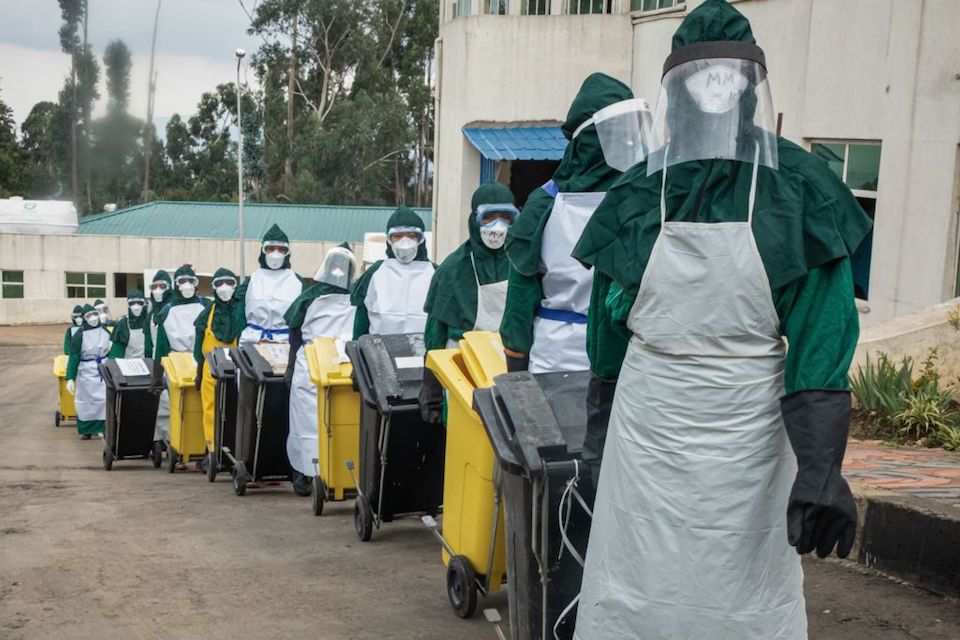After covid-19, how immune is the person to the virus? 1:20
Washington (CNN) - Months after the coronavirus pandemic began, much remains unknown about the disease. As various countries try to regain a sense of normality despite recent increases in cases, politicians and scientists are working to better understand how the virus spreads and how best to prevent future outbreaks.
At the heart of these efforts are some critical questions: Can children transmit the virus? If someone gets the virus, how long is it contagious? Then are you immune or can you re-infect yourself?
The answers to these questions will influence not only how countries will reopen schools and workplaces, but will also have implications for the usefulness of any eventual vaccine.
Kentucky Republican Senator Rand Paul fueled the debate with comments he made in a July interview in which he claimed that he, along with millions of people, are now immune to the coronavirus because they had already had covid-19. In March, Paul became the first United States senator to test positive for the virus. Paul is a trained doctor and ophthalmologist.
While discussing who would likely receive a vaccine when one becomes available, Paul said, "There are millions of us like me who are immune, are they going to hold me and stick a needle in my arm?"
Previously, Paul also stated that “since we don't have a vaccine, the only way to get immunity is to get more people to get coronavirus, and I don't think it can be said enough to have millions of people who now have immunity because they are essentially blocking the spread of the virus. "
The facts first: It is not clear whether those who are already infected with the virus are immune to any reinfection. Also, it is unknown how long any type of immunity would last.
It is currently impossible to tell from an antibody test whether someone is immune to the coronavirus, according to Dr. Celine Gounder, an epidemiologist and clinical assistant professor at New York University.
"All you can say about an antibody test is that someone has been exposed," Gounder told CNN. "You really can't say anything about immunity."
In April, the World Health Organization warned against the creation of immunity passports suggested by some governments, noting that "no study has evaluated whether the presence of antibodies against SARS-CoV-2 confers immunity to subsequent infection by this virus in humans ”.
Aubree Gordon, an associate professor of epidemiology at the University of Michigan, told CNN that the problem with Paul's claim is that "we really don't know."
"Yes, the vast majority of people who have had covid-19 develop an antibody response," said Gordon. "However, although the scientific community is generally optimistic, we do not know whether people who have been infected and recovered are generally 'immune' to the infection or whether they can be reinfected."
During a briefing in late April, the Infectious Diseases Society of America warned that previously infected people should not assume they have immunity against the virus.
"We don't know if patients who have these antibodies are still at risk for covid-19 reinfection," said Dr. Mary Hayden, an IDSA spokeswoman and chief of the Division of Infectious Diseases at Rush University Medical Center. "At this point, I think we should assume that they may be at risk for reinfection."
"We don't know if the antibodies are protective, what degree of protection they provide, so it could be complete, partial, or how long the antibodies last," Hayden added.
Texas alarm for covid-19 outbreak in babies 4:42Antibodies chronology
As Hayden pointed out, it is unclear how long the antibodies that could be effective against the virus remain.
Researchers from King's College London found evidence that immunity declines after a few weeks. Their study, published on a prepress server and not yet peer-reviewed, supports studies by the government in Spain that indicate that people lose antibodies to the virus after a few weeks.
Gounder also told CNN that medical experts are not sure how long neutralizing antibodies generated by the immune system in response to the coronavirus last.
Block the spread
Dr. William Schaffner, a professor of infectious diseases at Vanderbilt University, rejected Senator Paul's claim that the millions of people who have been infected with the virus are now essentially blocking its spread.
"Since we don't know how long natural protection will last, it may be the case that even infected people may need the vaccine at some point," Schaffner told CNN. "That remains to be determined."
He added: “Waiting for the virus to 'immunize' the population is a very Darwinian concept, the survival of the fittest. In general, we try to avoid that in public health. ”
Furthermore, according to the Centers for Disease Control and Prevention, an uncertain but not negligible percentage of people infected with the virus are asymptomatic and there is some evidence, including a June study of 37 asymptomatic patients, that people without symptoms they develop a weaker immune system. response to coronavirus infection than those who feel sick.
covid-19Fact Check Immunity






